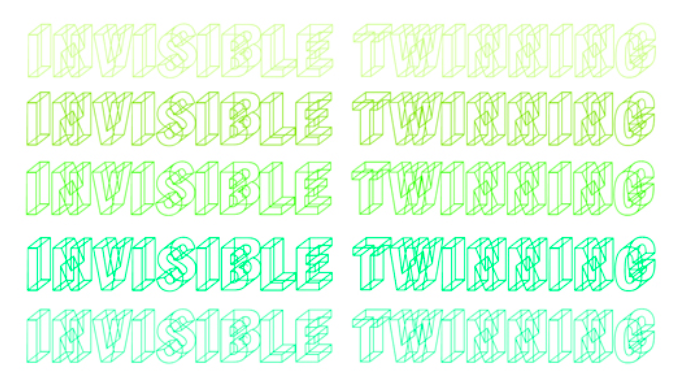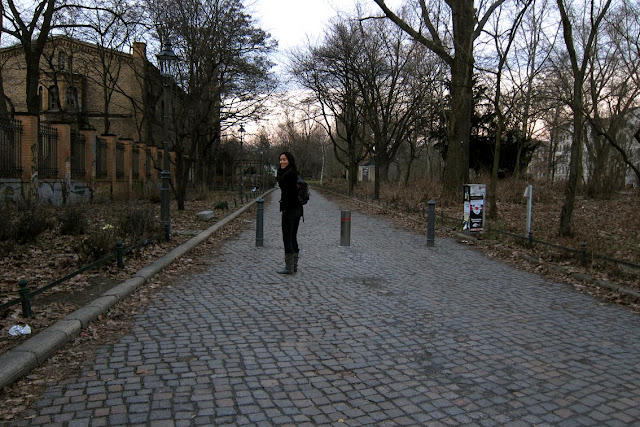 |
| "We are like in a sort of a fairytale" |
 |
| we go to have a chat with Klaus |
 |
| POG surrondings |
In Berlin every colony has his own history and each one is different. This one has a very ancient history, as it was created during the wartime by several railway workers. In 1964 there were already 34 plots and they became part of the Berlin Railway Gardeners Organization - BLW - even if up to then this was a wild colony! Now we are still part of the BLW and we have 65 gardens. We have arrived at the third or forth generation and some people have their gardens from their granfathers. This year few people has changed because few olders have died and we have people of different professions, not only railway workers. I am retired but I was a teacher for literature and art, for instance, some people are intellectuals, artists, foreigners... sometimes omosexual and the olders cannot understand... they do not say bad words, though. They just say "we need more kids!" and I know what they are referring to... This is my four year being president at this colony. Sometimes it is difficult to intermediate between peopl, to let others people know about the colony and to make old owners interact with the new ones.
Up to last year the whole colony ran the risk of being closed because the municipality was planning to build sport yards and the colony would have been destroyed. However few months ago the municipality decided to build the courts at Tempelhof where there is a lot of space. Lucky us!
Moreover, all the empty areas you see around here, once belonged to the Railway Company that has recenly became a big investor - so there was the risk that these areas - really close to Postdamerplatz - could become gainful places to build new apartments. The City of Berlin happly managed to buy all the plots and decided to create green areas and parks instead of the apartments. The first park ( on the east side of the bahn) is almost finished and I think it will be ready for the springtime.
 |
| POG entrance |
 |
| Fences between gardens. Bushes have to be same high. |
Gayle: Do you have to follow some rules?
Yes, we do. Every colony does. There are many specific rules that govern colonies, however here it is a little bit different because this was a proletarian colony, so private property is understimated compared to other colonies - not only for my influence, because I come from '68 movement, it was already like this. Moreover this colony grew up in a desolated area beyond Postdamer Platz and very few people knew about it, so it has always been a bit isolated and different from the others. When people come here they notice the difference. We are like in a sort of a fairytale. When I became president, many people here thought that the only way to survive as a colony was to slavishly follow the rules, however I believed that it would have been better to mantain our peculiar characteristcs because people do not mind if you cut the grass six centimeters more or less.
 |
| Gayle, Giulia and Klaus talking. Me, documenting. |
 |
| Our autonomy is our peculiarity |
Gayle: What do people cultivate most?
It dipends, there are some intercultural gardens that use their plots mostly as freetime places to stay together. They cultivate something - such as fruits for marmelades - but cultivating is not the most important thing for them. Here instead, we are obliged to cultivate one third of the plot, otherwise we fall in another category and we have to pay an higher rent.
 |
| Herbs plot |
Francesca Mila: Who is the supervisor? Is he inside or ourside the colony?
The first supervisor is the President. During the year, we have several meetings with all the other presidents of the colonies - that are 80 for the city of Berlin and we are the number 40 - where we have to report what is going on. It is quite funny because in the last years you can find also women!
Besides this, sometimes there are small groups that come to check the colony and to write down what you have to change and few weeks later they come again to verify that everything has be done. If not, troubles occur and you loose protection.
To be honest, we do not have them here very often... maybe we would need a bit more. However, our autonomy is our peculiarity.
We partecipate to Magistrale Festival (http://magistrale2010.wordpress.com/) and we have art performances on the third thursday of the month, the curator called it "Stay Hungry" (http://stay-hungry.net/). We try to differentiate our colony in many ways and try to let other people know us. We put our news on the blog and on Facebook, but sometimes old people, who maybe do not even have internet, cannot understand this kind of communication. It is difficult to explain them that even if they do not see anything here, we are present on internet.
We also started to do public gardening projects and we are planning to do many others, working with schools, old peoples... We did one with young people who took drougs. They needed to find a new path and a new work and - why not - this could be gardening. It can be really healthy.They worked with social workes and architects and they chose to plant herbs in a spot and flowers and bushes in another. We had to support them and to offer them toilets during that periond and some of them had a punk look so few olders could not understand this initiative. But then everybody had to recognise that they did really beautiful works since the summer up to the autumn.
 |
| we go to see the flowers spot the young people created last summer |
 | |
| "We started to do public gardening projects and we are planning to do many others, working with schools, old peoples..." |
Giulia: Makes the difference? To have a park bordering your colony?
When we luckly discovered that our colony would not have been destroyed but integrated, we started to discuss with the architects that won the contract. We meet every three weeks and we speak about the changings that we have to do to be included in the park. For instance architects like ortogonal and very wide paths, they request us to have 3 meters wide paths but it is really to much for us and the gardeners do not agree... so we meet and we try to find out compromises. It is a long process.
 |
| Fence between the colony and the park |
 |
| Fence in the background bounds the colony |
Gardeners cannot anymore park their car in front of their plot and they are very sad about this. One says to me "I need to carry wood", the other "My leg is broken", the other again "I have a party tonite"... It is difficult and we have to get used to the new situation, that we are in a park and that maybe many people will come to visit us as there is no border between the colony and the park. No fences. We can mantain them between gardens but not between the park and the colony.
Things are going to change very quickly.
Things are going to change very quickly.
 |
| Thank you and goodbye Klaus |








